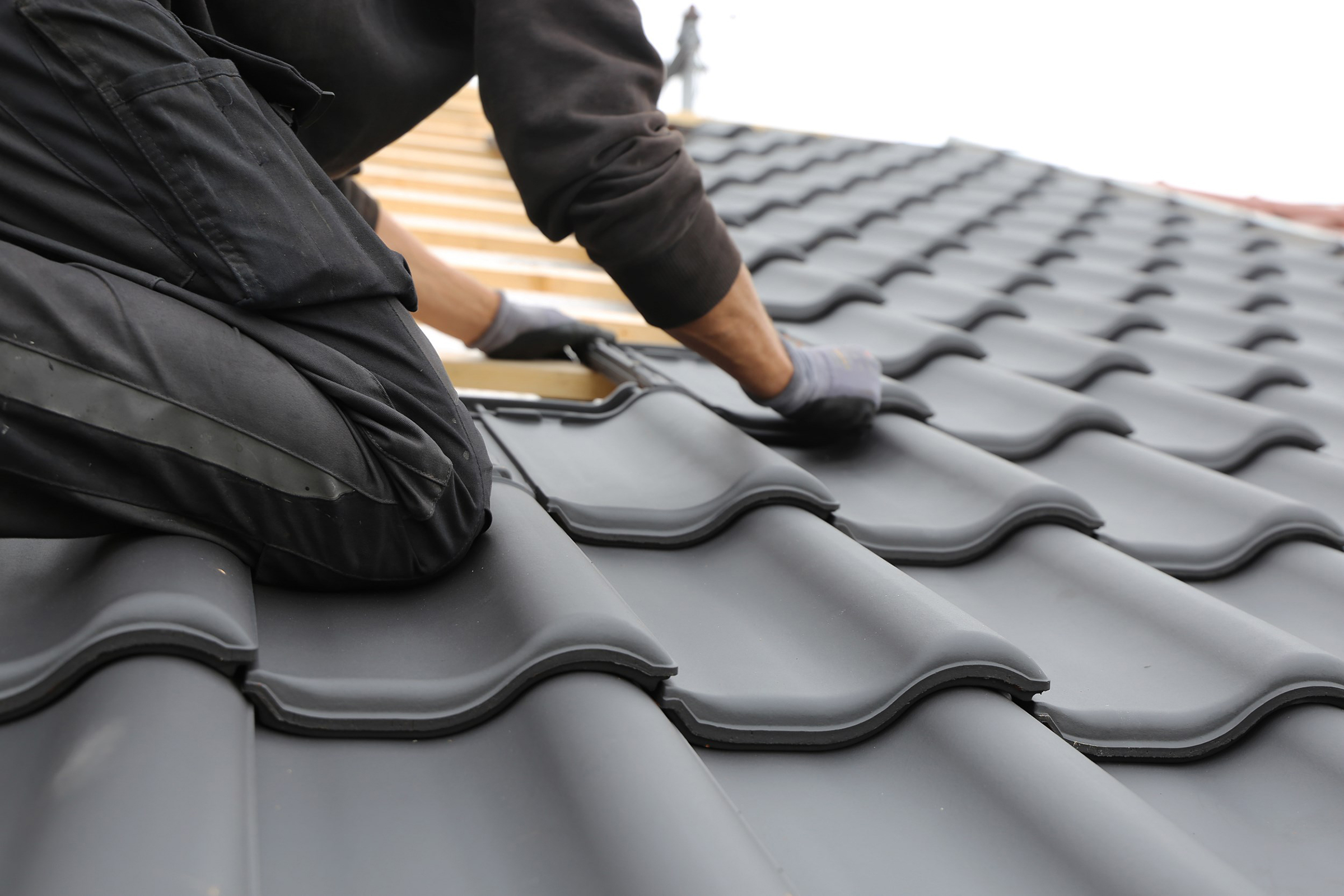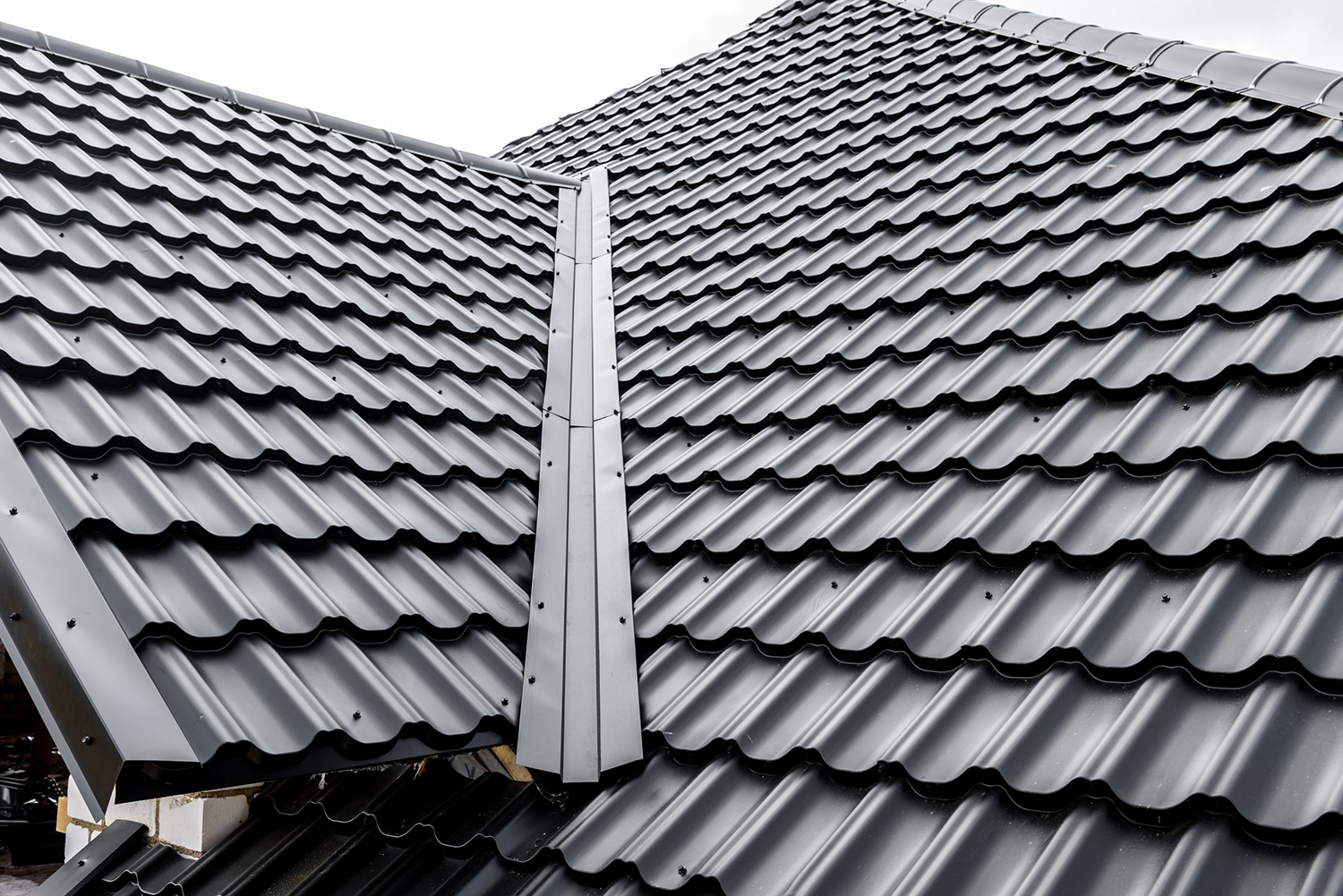The mechanical tile was invented in the 19th century, since then it has gradually gained its place on the roofs. Today, it is used more and more for roofs. Indeed, it has many advantages that continue to attract new followers. Also known as interlocking tiles, they adapt to any style of construction and especially to all budgets. They can resemble the interlocking appearance of some architectural cladding profiles available on the metal cladding and roofing market. In this article, find out more about the subject. We develop for you the advantages and disadvantages of the mechanical tile, expected rates, and the way to install them properly.
All about interlocking mechanical tiles
Definition
These are molded tiles, manufactured industrially, which can be generally in terracotta or concrete, but also in composite materials and even glass.
Unlike the so-called classic tiles, mechanical tiles have grooves and ribs designed to fit together perfectly. Their method of hanging on battens, coupled with their casing system gives them a very good seal. They are often very popular with roofers and do-it-yourselfers, even in roof renovations, because their size is larger than that of conventional tiles, which allows faster installation.
Hence, if you’re planning to replace your roof anytime soon, interlocking mechanical roof tiles may be an excellent option. But, even if these roofing materials are easy to install, it may be best to work with experienced roofing contractors to handle the installation process for you.
With them at your side, you can guarantee top quality roofing services. They have valuable years of experience in handling roof repair, replacement, and other projects, such as Colorbond roof restoration. Compared to mechanical roof tile installation, restoring a Colorbond roof can be a more complex process which requires the services of a trusted roofing company.
So, when looking for some people to work on your roofing needs, it may be best to factor in their experience and the types of services they offer to get the most out of them.
The different types of mechanical tiles
There are two common types of mechanical tiles, which come in a wide variety of possible sizes. In this way, they adapt perfectly to almost all styles of roofing, whether old or modern. With or without color coating or whatever type of materials they’re available in, such as clay, slate, or Cambrian slate, the choice is yours, according to your tastes and the design of your locality. In any case, take the time to select the model of mechanical tile that will adorn your roof.
Mechanical tile small mold
It weighs between 4.5 and 6.5 lbs per piece and it takes 15 to 22 tiles per square meter. Shape and color vary depending on the region. It is rather suitable for roofs with steep slopes.
The large mold mechanical tile
This tile weighs between 5 and 10 lbs per unit. You will need less to cover a square meter of roofing, between 10 and 15 tiles. On the other hand, it is not very suitable for sloping roofs, but the roofs with a gentle slope.
Note that nowadays, we can find so-called “hybrid” tiles that combine a classic style with an industrial manufacturing method.
Why do we like mechanical tiles?
Widely used by roofers and DIY enthusiasts, mechanical tiles no longer have to prove their benefits in construction. In fact, more and more roofs proudly display interlocking tiles. Here are some of the main advantages of this type of tile:
- As we said previously, thanks to its dimensions and its hanging system, installation is quick and simple.
- The variety of models offered means that it can adapt to both modern and old construction. The choice of materials and colors is very wide which will undoubtedly allow you to find the shoe to your feet, or rather tile to your roof.
- The savings on both purchase and installation are not negligible. The price of mechanical tiles is often advantageous because they are manufactured industrially which reduces the cost of production. In addition, the installation is simplified, hence reducing the fee you will have to pay to the craftsman. Better yet, you can do the pose yourself if you have minimal equipment.
- The weight on the frame is less because the number of tiles per square meter is limited and each tile weighs relatively little compared to conventional tiles. You can therefore opt for a lighter and less expensive frame.
- Strong and durable, thanks to their interlocking system, mechanical tiles present very little risk of flying, unsticking, or slipping. For more roofing tips, read this post on how to find and fix a leaking roof.
A few caveats
There are a few downsides, which you should be aware of before you dive into buying mechanical tiles.
- If you are into construction techniques and classic aesthetics, you may appreciate the rendering less. As most mechanical tiles are flat, the result is a little different from regional or classic tiles. This drawback could be circumvented by using slightly curved interlocking tiles since there are many designs these days.
- Interlocking tiles are lighter and therefore less thick than conventional tiles. This results in less efficient sound insulation. To reinforce this aspect, you can place a screen under the roof that will counteract this weakness of the mechanical tile.
- Mechanical tiles are integral with each other, this is both an advantage and a disadvantage. If one of the tiles were to present a defect then the risk of infiltration would be greater than with conventional tiles. Be careful when installing that there are no defective elements and immediately replace a tile that would be damaged by weather or other.
Interlocking tiles have many advantages and some shortcomings that can be worked around once you are aware of these small weaknesses. As is often the case, a time to study the different products and reflect should allow you to find the solution that ideally suits your needs.
Prices and needs per square meter
The price of mechanical tiles per square meter depends on several criteria such as the choice of a small or large model, the material, the color, and the finishes. In general, will count between 15 and 22 small mold tiles per square meter; against 10 to 15 large mold tiles per square meter. The unit price of a tile varies, so do a market survey to find out the best price.
If, on the other hand, you want to call in a professional, the installation price becomes a lot higher. Whatever the price would be, it won’t include any renovation work on the frame that may be necessary before the tiles are installed.
As with most building materials, the larger quantities you buy, the better the prices. Depending on your needs, you can try to get your mechanical tiles by pallet and not individually. The savings could be substantial. The simplicity of installation and the variety of models available make mechanical tiles an excellent alternative for the renovation or construction of your roofs.
Conclusion
Interlocking mechanical roof tiles have become one of the popular roofing materials used in several residential homes across the world. Whether you want a modern or traditional look, these roof tiles also remain one of the sought-after roofing options today. But, if you’ve heard about them for the first time, keep the information mentioned above to get familiar with interlocking mechanical roof tile. By doing so, you’ll figure out whether they’re the right roofing solution for your home.







